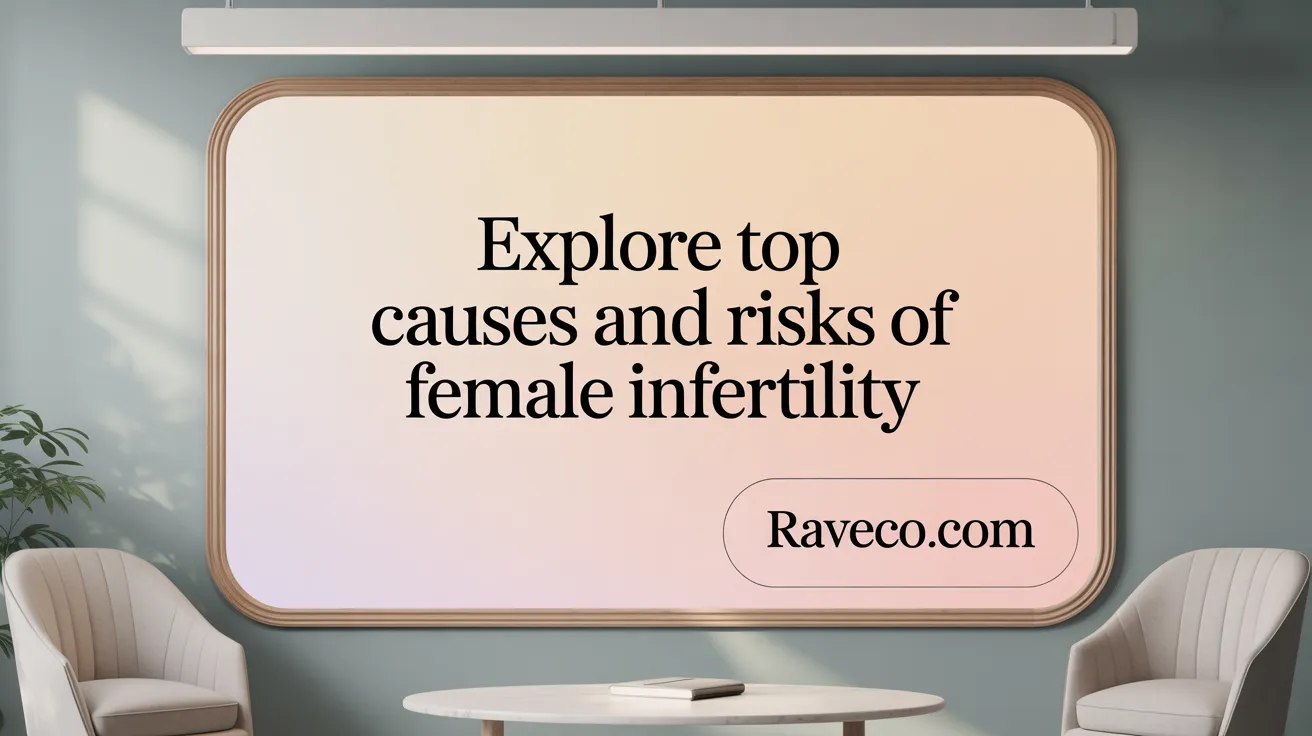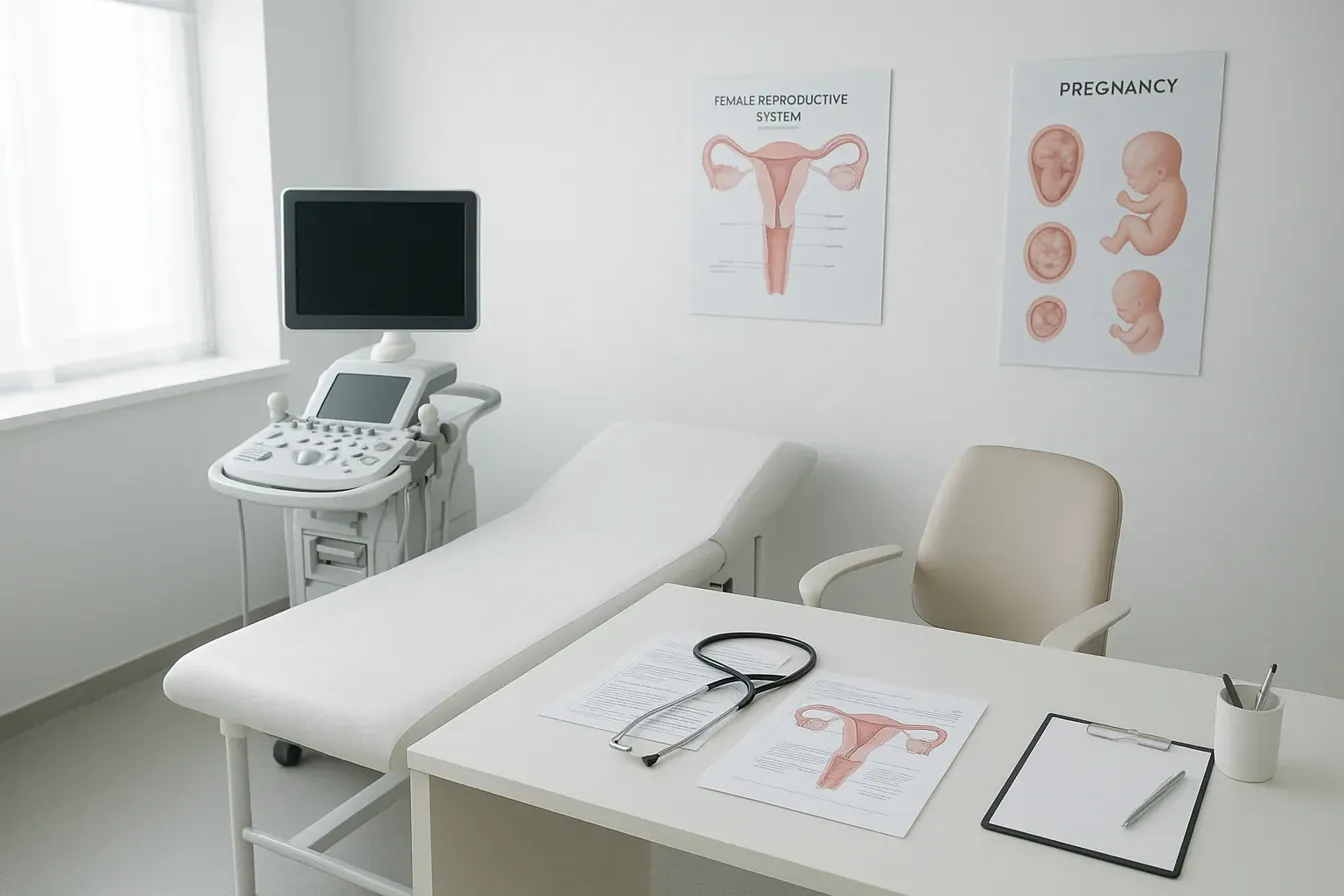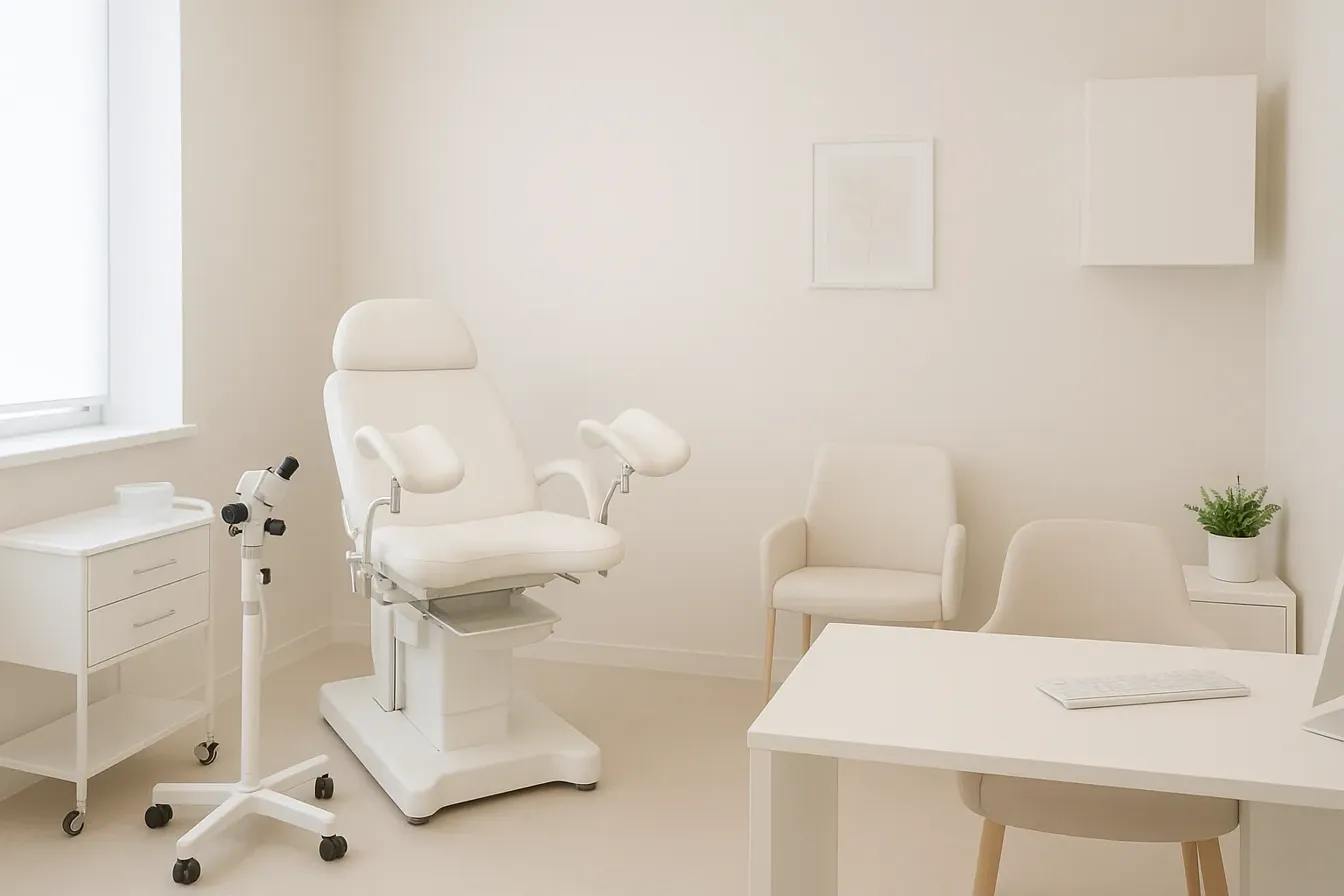Navigating Your Birth Control Choices: Tailoring Options to Fit Your Unique Lifestyle

Understanding Female Infertility: Definitions and Early Indicators
Definition of Infertility
Infertility is medically defined as the inability to conceive after one year of regular, unprotected sexual intercourse for women under 35. For women aged 35 and older, the timeframe for seeking evaluation shortens to six months due to the natural decline in fertility with age.
Primary Symptom – Inability to Conceive
The most common and noticeable symptom of infertility is the persistent inability to become pregnant despite consistent efforts. This difficulty in conceiving may lead women and couples to seek fertility assessment or treatment options.
Significance of Irregular or Absent Menstrual Cycles
Irregular, absent, or significantly long or short menstrual cycles often point to underlying ovulation problems. Since ovulation is crucial for conception, irregular periods can be a warning sign of ovulatory disorders like polycystic ovary syndrome (PCOS) or hormonal imbalances that may cause infertility. Women experiencing these symptoms are encouraged to consult a healthcare provider for timely evaluation and intervention.
When to Seek Medical Evaluation for Infertility

Recommended Timelines for Seeking Help Based on Age Groups
For women under 35, it is typically recommended to try conceiving naturally for at least one year before consulting a healthcare provider about infertility concerns. This timeframe allows for most couples to conceive without medical intervention.
Women aged between 35 and 40 should consider seeking medical advice sooner—after about six months of trying to conceive—due to the more noticeable decline in fertility occurring during these years.
Urgency for Women Over 40
Women over 40 face a more rapid decline in fertility, making it advisable to seek fertility evaluation immediately upon deciding to conceive, or after just a few months of unsuccessful attempts. Early assessment in this age group improves the chances of identifying underlying issues and starting appropriate treatments promptly.
Importance of Early Consultation for Women with Known Risk Factors
Certain conditions increase the urgency for infertility evaluation regardless of age. Women experiencing irregular or absent menstrual cycles, a history of endometriosis, pelvic inflammatory disease, previous pelvic or abdominal surgery, or recurrent miscarriages are encouraged to seek medical advice early. These factors may indicate ovulation disorders, damaged fallopian tubes, or uterine abnormalities that could obstruct conception.
Timely consultation helps in early diagnosis and initiation of treatments tailored to individual needs, increasing the possibility of successful pregnancy.
When Should a Woman Seek Medical Advice About Infertility?
Women under 35 should try to conceive for at least one year before seeking help, while those aged 35 to 40 are advised to consult a doctor after six months. Women over 40 should seek evaluation more immediately due to faster fertility decline.
Common Causes and Risk Factors of Female Infertility

What are the leading causes and risk factors of female infertility?
Female infertility can result from several medical and lifestyle factors that affect the reproductive system's ability to conceive and maintain a pregnancy. Learn more about Causes of female infertility.
Ovulation Disorders
One of the most frequent causes is ovulation problems, including:
- Polycystic Ovary Syndrome (PCOS): A hormonal disorder causing irregular or absent ovulation.
- Hypothalamic dysfunction: Disrupts hormonal signals needed for ovulation.
- Primary Ovarian Insufficiency (POI): Early loss of normal ovarian function reducing egg availability.
Structural Issues
Mechanical or anatomical problems can interfere with fertilization or implantation:
- Fallopian Tube Damage or Blockage: Often caused by pelvic inflammatory disease or surgeries, preventing sperm and egg meeting.
- Uterine Fibroids and Polyps: Noncancerous growths altering uterine shape and function.
- Endometriosis: Abnormal growth of uterine tissue outside the uterus causing scarring and blockages.
Lifestyle and Health Risk Factors
Certain behaviors and conditions worsen fertility risks:
- Advanced maternal age especially over 35, when egg quantity and quality decline.
- Smoking and heavy alcohol consumption, both linked to reduced fertility.
- Being underweight or overweight, which can disrupt hormone balance.
- Sexually transmitted infections (STIs), increasing risk of tubal damage and pelvic disease.
Addressing these factors early by consulting healthcare providers can improve chances of conception and guide appropriate fertility treatments. Women in Queens, NY, for instance, have access to specialized fertility care focused on these causes and risks.
Signs and Symptoms Suggesting the Need for Fertility Specialist Consultation

What symptoms should prompt a fertility specialist consultation?
Women who notice irregular menstrual cycles and fertility, absent, or unusually long or short menstrual cycles should consider seeing a fertility specialist, as these often indicate Ovulation disorders. Conditions like Polycystic ovary syndrome (PCOS) commonly disrupt regular ovulation and can affect fertility.
Other important symptoms include persistent pelvic pain, heavy or unpredictable menstrual bleeding, and experiencing two or more miscarriages. These signs may indicate underlying gynecological conditions such as Endometriosis and fertility or uterine abnormalities that require medical evaluation.
Male factors also play a significant role in fertility. Men with abnormal semen analysis results, including low sperm count or poor motility, should also receive specialist evaluation. Addressing male infertility early can increase the chances of successful conception.
Early consultation is especially recommended for women over 35 years who have been trying to conceive for six months or more, as Age and infertility. Likewise, couples facing these symptoms should seek timely evaluation to explore appropriate testing and treatment options available locally.
By recognizing these signs and seeking expert care, couples in Queens, NY, can take proactive steps toward managing infertility and improving their chances of achieving pregnancy.
Personalized and Advanced Women's Healthcare for Infertility in Queens, NY
What types of comprehensive obstetrics and gynecology services does a woman-led healthcare provider typically offer?
Women in Queens, NY benefit from a range of obstetric care in Queens NY and OB/GYN services in Queens NY that are often led by women healthcare providers. These services include routine gynecological exams, fertility consultations, and specialized management of disorders commonly affecting fertility such as polycystic ovary syndrome (PCOS) and endometriosis. Care also spans prenatal management, pregnancy monitoring, and treatments incorporating advanced techniques like laparoscopy and hysteroscopy to address anatomical issues or perform reproductive surgeries.
How does a woman-led healthcare provider emphasize personalized and advanced women's healthcare?
Personalized care is at the core of a woman-led provider’s approach. Care plans are carefully tailored to each patient's unique health profile and reproductive goals. This often involves the use of advanced diagnostics, including hormonal blood tests to assess ovulation and ovarian reserve, pelvic ultrasound imaging, and more specialized procedures such as hysteroscopy for uterine evaluation. Technology such as 4-D ultrasounds aids detailed fetal and reproductive assessments.
Treatment offerings are comprehensive and current, including fertility treatments like intrauterine insemination (IUI), in vitro fertilization (IVF), egg freezing, and fertility preservation techniques. Providers emphasize cultural sensitivity and compassionate communication, understanding the physical and emotional complexity of infertility. They coordinate care that respects diverse backgrounds and ensures individualized, evidence-based interventions.
This integrated model of care in Queens ensures women receive expert guidance and effective support throughout their fertility journey, enhancing chances of successful pregnancy while prioritizing overall well-being.
Preventive Measures and Emotional Support in Fertility Journeys
What lifestyle changes and support are recommended for women planning pregnancy or experiencing infertility?
Maintaining a healthy weight for fertility is essential for enhancing fertility, as both underweight and overweight conditions can disrupt ovulation and hormone balance. Quitting smoking and avoiding excessive alcohol intake also contribute positively by reducing harm to reproductive organs and improving egg quality.
Managing stress through relaxation techniques, therapy, or support groups supports hormonal balance, which plays a vital role in fertility. Women are encouraged to recognize early symptoms like irregular menstrual cycles and infertility or pelvic pain and seek timely medical advice to increase the chances of successful treatment.
Emotional support is equally important. Infertility often causes psychological distress, anxiety, or depression, making counseling or therapy an invaluable resource. Mental health support helps women cope with the emotional challenges during their fertility journey, improving overall well-being and resilience.
Combining these lifestyle modifications, early clinical intervention, and mental health care offers women a comprehensive approach to improve fertility outcomes and maintain emotional health throughout their journey.
Taking Action Early: Empowering Women in Queens to Address Infertility
When to Seek Medical Help for Infertility
Women under 35 should consider consulting a healthcare provider if they have been trying to conceive for over a year without success. This timeline shortens to six months for women aged 35 to 40, and women over 40 are encouraged to seek evaluation even sooner due to the natural decline in fertility with age.
Irregular or absent menstrual cycles, a history of conditions like polycystic ovary syndrome (PCOS), endometriosis, pelvic infections, or multiple miscarriages are additional reasons to seek early evaluation. Early action can improve diagnosis and open the door to effective treatments and support.
Access to Specialized Local Fertility Resources
Queens offers comprehensive reproductive health services through expert clinics such as Mount Sinai's Reproductive Endocrinology division, NYU Langone Reproductive Specialists, and RMA of New York. These centers provide a range of advanced fertility treatments including ovulation testing, intrauterine insemination (IUI), in vitro fertilization (IVF), egg freezing, and fertility preservation.
Choosing specialized care locally ensures personalized treatment plans tailored to individual needs, with access to cutting-edge technologies and compassionate care teams.
Empowerment Through Personalized Care and Support
Women facing infertility challenges in Queens are encouraged to utilize these expert resources to receive thorough evaluations and treatments. A personalized healthcare approach combined with emotional support can alleviate stress and improve outcomes.
By acting early and partnering with trusted local specialists, women can optimize their chances of achieving pregnancy and building the family they desire, empowered by knowledge, compassion, and advanced medical care.





.png)